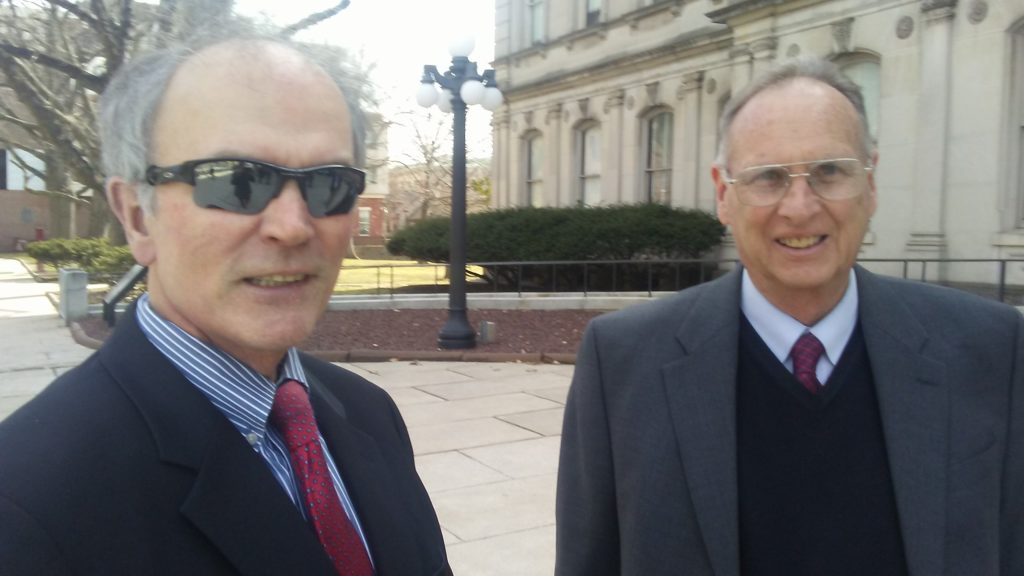ELEC Staff Already Reviewing How Operations Might Change After Virus Crisis Ends

The COVID-19 pandemic may permanently change the way government will go about its business.
That is why government officials, including those of us here at the New Jersey Election Law Enforcement Commission (ELEC), already have begun to assess potential changes in the post-COVID-19 era.
Last spring, necessity forced state government, including ELEC, to begin allowing employees to work from home. Permitting employees to work remotely had government managers scrambling to implement hastily devised telework plans never before utilized throughout state government.
It is difficult to say at this point but if technology proves dependable and available to public employees, chances are that a portion of the state work force will continue to telework from home, if only on a part-time basis.
The last several months have served as a proving ground for government to function remotely and in a virtual capacity. This period of time has allowed public employees to gain experience working away from the office. Moreover, it has allowed managers to gain insight into those functions of government that are adaptable to teleworking and to those that are performed better in-person. The experience should prove invaluable for developing plans for the future.
In terms of employees working from home, the public sector has been slow to the post. Rather it has been the private sector that has steadily moved in this direction; it seemingly more conducive to teleworking than government.
The growth in private sector teleworking has brought with it benefits as well as drawbacks. Relocation costs have been reduced, turnover decreased, and with less commuting a positive impact on the environment.
On the other hand, working remotely can negatively affect office culture with less personal interaction and morale-boosting activities. The lack of in-person give-and-take makes performance reviews more difficult, may make it harder to spot employees deserving promotions and dampens camaraderie.
Any movement toward more permanent teleworking in government must consider the drawbacks of teleworking. It also must weigh the fact that the public, which underwrites government with its tax dollars, expects that government is working on its behalf, is accountable and is operating efficiently.
Because of its very nature, a government solely functioning remotely and on a permanent basis would have difficulty meeting those standards while maintaining the trust and confidence of the people.
During the past year, ELEC has functioned primarily on a remote basis with staff mainly working from home. As the pandemic subsided, limited staff began rotating in and out of the office. But as COVID-19 cases began rising in recent days, staff again began largely teleworking.
During 2020, compliance, legal, and investigative functions continued with candidates, committees, lobbyists, and public contractors reporting electronically while the public had timely, online access to those reports.
As a service to the public and the historical record, the Commission produced analytical press releases, columns, and white papers that traced trends in campaign financing, lobbying, and pay-to-play. It also continued its monthly newsletter and launched a new initiative, the Oral History of the Commission project, which will involve video-interviews with individuals who have contributed to the Commission and its mission through the years.
The Commission, with IT staff support, has held virtual meetings each month, including a public hearing. And our public financing staff is already gearing up to oversee the gubernatorial public financing program, which provides funds to qualifying candidates for governor. New Jersey will hold an election for Governor and Legislature on November 2.
Despite the Commission having maintained customary levels of service during the year of the plague, after the crisis subsides the effect on the Commission will need to be assessed. This also holds true for government in general.
As part of this assessment, ELEC staff is formulating a long-range plan to account for any shortcomings made apparent during its experience with teleworking and to prepare for changes that may come about in the future to ensure that the public continues to be served in the manner it deserves.
Included as part of this assessment and long-range plan staff will identify those services that can be performed remotely without loss of service. Further, it will determine those services that must be provided in person. As part of this process, staff will consider cyber-security issues as well as the cost of new technologies, including a new phone system, that would be required to allow for an efficient transition to teleworking if that is the direction the State moves toward. It will also assess where taxpayer dollars can be saved through new initiatives involving virtual and remote operations.
As an old school adherent and a traditionalist, it would be my preference for government to function in the customary in-person manner it has for decades. However, as a manager, I also realize that it is important to look to the future and to prepare for emerging trends.
In the days ahead, the Commission will take both approaches into account as it strives to reach the goal of continued excellence in serving the public and the filing community. It is with this in mind that staff will undertake an in-depth assessment of what is needed to implement a more permanent work-from-home strategy if indeed it becomes necessary.
Jeff Brindle is the Executive Director of the New Jersey Election Law Enforcement Commission.
The opinions presented here are his own and not necessarily those of the Commission.





